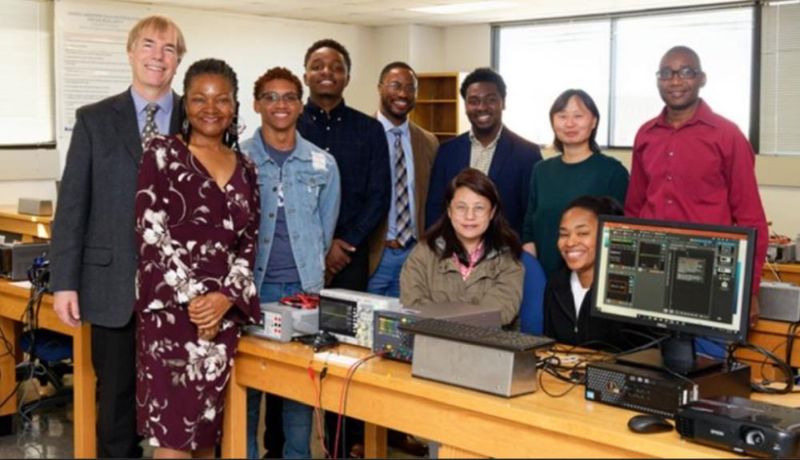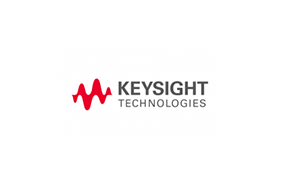Engaging for Engineering Advancement in America's HBCUs
By Dr. Doug Baney | Corporate Director of Education
Published 04-06-21
Submitted by Keysight Technologies

Historically Black colleges and universities (HBCUs) play an essential role in higher education for African American engineering students in the United States. The Higher Education Act of 1965 defined HBCUs and their principal mission for the education of Black Americans. According to the National Center for Education Statistics1, there are approximately 300,000 HBCU students, with African American students comprising 76% of enrollment. Historically, however, HBCUs have been on the sidelines of investment and advancement, which has been particularly detrimental to science and engineering. Additional challenges include recruitment and retention of students within engineering programs. From a nationwide university perspective, 4-year graduation rates are below 30% for students in engineering, rising to 40% for graduation within six years, according to a 2017 study by the American Society for Engineering Education2 (ASEE).
Presently, there are no Carnegie classified R1 HBCU universities. According to the Carnegie Classification of Institutions of Higher Education3, R1 institutions have very high research activity and award at least 20 research/scholarship doctoral degrees and have at least $5 million in total research expenditures. For HBCUs, resources, particularly infrastructure, remain a critical issue. Investment in laboratory tools and instruments is imperative for experiential learning to prepare students for success in industry and for winning research grants. Equipping laboratories to provide access to modern tools and processes is essential for student retention and achievement of successful outcomes in a competitive workforce. It also enhances the university's reputation for providing a quality experiential education as required under Accreditation Board for Engineering and Technology Inc. (ABET) guidelines.
Pathways to Engagement
At Keysight, we’ve developed and implemented several measures to help advance engineering programs in partnership with HBCUs. These methods impact across the university ecosystem from students entering the program to graduating and being ready for success in industry:
- Generating interest at grade and high school levels to get students excited about science, engineering, and technology careers
- Assisting in infrastructure, including laboratories
- Increasing visibility on university campuses through guest seminars and competition sponsorship
- Giving grants and scholarships to advance engineering education and research
- Providing mentoring and material assistance for design projects and student clubs
- Offering business mentoring to help develop engineering leadership
- Hiring students for internships in industry
- Recruiting students on-campus, or through virtual job fairs
- Participating in Dean or Department level Industrial Advisory Boards
Persistent and Sustainable Engagement
When assisting universities and paving a path forward for meaningful advancement, a sustainable financial and organizational support framework is crucial. Making significant investments to drive equitable opportunity is measured in years, not in financial quarters. Universities prefer partnerships with industry which translates to maintaining an ongoing engagement beyond participation in autumn job fairs.
Connecting through Engineering Organizations
We take pride as an early engager with HBCUs offering teaching and other resources available through our education program4. For example, Keysight is a founding industrial sponsor of the Inclusive Engineering Consortium5 (IEC). This organization brings together many HBCU resources into a super-department and has a growing industrial sponsors list. The aim is to prepare HBCU graduating engineers for success in the technology industry. The IEC is a great place to get started and connected with HBCUs and minority-serving institutions of higher learning, particularly in the areas of electrical engineering, computer engineering, and related disciplines. Student and professional engineering development societies, such as the National Society of Black Engineers6 (NSBE) and the ASEE, are great resources and excellent forums for engagement.
In future blogs, we'll provide more insights on Keysight's education contributions in the engagement areas described above. We're on this journey together as we drive towards an equitable and inclusive engineering education system and the advantages it brings to our society.
References
1. National Center for Education Statistics
2. American Society for Engineering Education
3. Carnegie Classification of Institutions of Higher Education
4. Keysight Education Resources
5. Inclusive Engineering Consortium
6. National Society of Black Engineers

Keysight Technologies
Keysight Technologies
At Keysight (NYSE: KEYS), we inspire and empower innovators to bring world-changing technologies to life. As an S&P 500 company, we’re delivering market-leading design, emulation, and test solutions to help engineers develop and deploy faster, with less risk, throughout the entire product lifecycle. We’re a global innovation partner enabling customers in communications, industrial automation, aerospace and defense, automotive, semiconductor, and general electronics markets to accelerate innovation to connect and secure the world. Learn more at Keysight Newsroom and www.keysight.com.
More from Keysight Technologies

